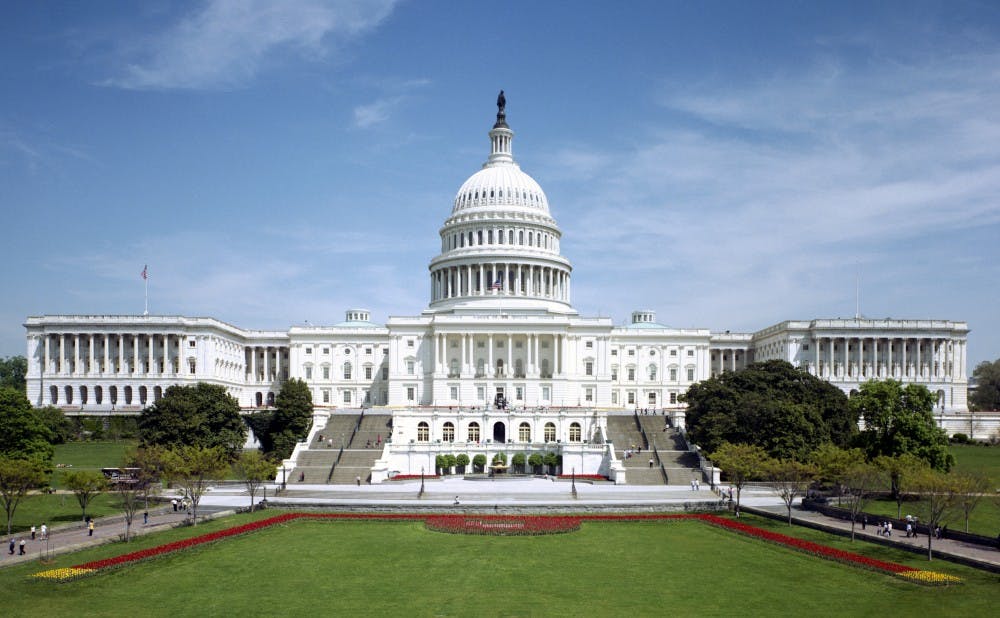It took seven-year-old Axel Herrera 18 days get from Honduras to the United States.
After going from bus to bus and crossing the Rio Grande on floats, he was stopped by immigration officials in Texas, but eventually made it to United States in search of better opportunities.
Now, after living in the country undocumented for nine years and receiving Deferred Action for Childhood Arrivals status in 2014, he is meeting with congressmen to fight for a solution to help those affected by President Donald Trump’s decision to end the DACA program.
DACA—which came into existence through a 2012 executive order by then President Barack Obama—was created to protect undocumented immigrants who had come to the country as children. The program allowed recipients to apply for work permits, get social security numbers and receive other federal benefits—such as obtaining driver's licenses—without fear of deportation.
Herrera is a Duke sophomore and co-president of pro-immigrant campus group Define American alongside fellow sophomore Ana Ramirez, also a DACA recipient. Although it is not yet an official student group, roughly 12 of its student members—some undocumented, some with DACA status—will travel to Washington from Nov. 29 to Dec. 2 to push for a solution for those who were formerly protected from deportation under DACA.
Define American is scheduled to meet with Reps. G.K. Butterfield (D-N.C.), George Holding (R-N.C.) and David Price (D-N.C.), and hopes to secure meetings with Sens. Rand Paul (R-Ky.), Marco Rubio (R-Fla.) and Thom Tillis (R-N.C.), the latter of whom was a chief writer of the proposed solution—the Succeed Act. They hope that their stories will help drive change on Capitol Hill and create a path to legalization for “Dreamers,” those protected under DACA.
“The best thing that they can do is just tell their story—the stories about growing up in the United States,” said Chris Simmons, associate vice president for government relations. “Choosing to come to Duke, the opportunities that have entered their lives, and how important it is for them to have a clear pathway forward now that their status is questioned. The most powerful thing they can do is tell their personal story about their situation.”
In 2017, 800,000 people fell under DACA status. It was not, however, a direct path to citizenship.
Individuals had to have continuously lived in America since June 15, 2007 and be younger than 31 on June 15, 2012 in order to be eligible for DACA status. Eventually, if a recipient received a green card—such as through marriage with a U.S. citizen—they would be able to apply for citizenship after five years.
Now, with DACA rescinded, the Succeed Act would give who those who have been in the country since DACA was implemented “a conditional permanent residence"—they could become citizens after 15 years, according to POLITICO.
According to the report, in order to get this status, individuals would have to pass background checks, submit biometric data and "pay off any back taxes or establish a repayment plan."
Define American hopes that the Succeed Act passes before Dec. 8, which is the federal government funding deadline. If legislators are unable to reach an agreement, they will have until March to make a deal—at which point DACA enrollees would be subject to deportation. Simmons said he expects there to be a legislative solution.
“There’s incredible bipartisan support,” Simmons said. “The president wants a resolution to this. And there’s a ton of overwhelming public support for this to happen. All the ingredients are there to solve this problem—it’s just a matter of how to solve it and getting it done before the due date.”
However, even if the Succeed Act or a similar solution is passed in December, Herrera said the battle would not end.
"The movement won’t stop there. If nothing happens, it will be a fight that continues. The issue with immigration is that it’s an issue that always gets bumped to the future,” Herrera said. “I’m not going anywhere. My family’s not going anywhere. Even when I was undocumented, I stayed in school and did what I had to do. Hopefully our push is stronger than the opposing side’s.”
Simmons said the issue Define American is fighting for is also one of the University’s biggest priorities with the federal government.
Although Define American, as an unofficial campus organization, is still going through the SOFC registration process, Ramirez noted that it certainly isn’t short on support from faculty and staff.
With a budget of $8,000 for the trip to Washington and other expenses, the group had to solicit donations on campus. Ramirez shared that that Provost Sally Kornbluth covered half that total. The Gender, Sexuality and Feminist Studies department covered $1,000, and Rebecca Ewing, lecturing fellow of romance, volunteered to serve as the group’s adviser, she added.
“People have been extremely supportive when we tell them that we are starting an organization here on campus,” Ramirez said. “It’s been a very supportive environment with the administration and professors.”
Get The Chronicle straight to your inbox
Signup for our weekly newsletter. Cancel at any time.

Managing Editor 2018-19, 2019-2020 Features & Investigations Editor
A member of the class of 2020 hailing from San Mateo, Calif., Ben is The Chronicle's Towerview Editor and Investigations Editor. Outside of the Chronicle, he is a public policy major working towards a journalism certificate, has interned at the Tampa Bay Times and NBC News and frequents Pitchforks.

